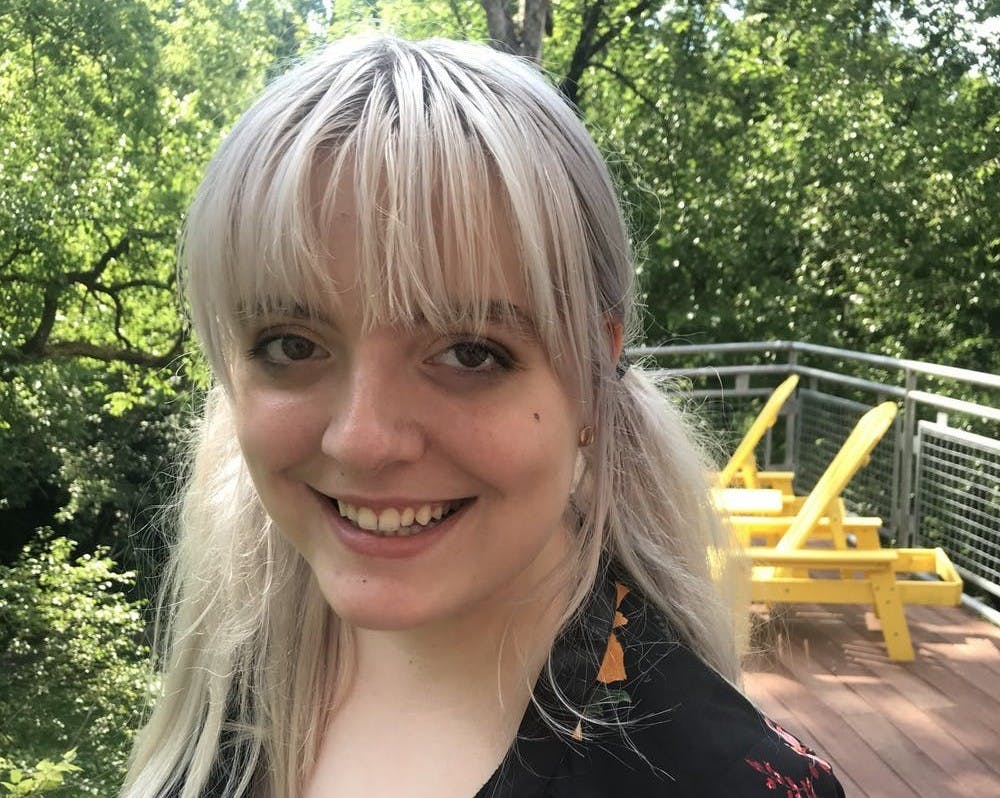I’d like to start off by saying that I’m tired. I’m tired of watching theater and seeing skinny, pretty girls play the leads all the time. Don’t get me wrong, they’re usually very talented, but there are more people in this world than just skinny girls. Theater is a reflection of the world and all who inhabit it. This isn’t a world solely inhabited by skinny people, so why are they constantly cast as the lead roles?
This is by no means a new phenomenon. I remember sitting in my high school acting class and being told by my teacher that casting, in the professional theater world, is entirely based on appearance. Basically, she was saying if you aren’t skinny and pretty, this isn’t the place for you.
I have played many motherly characters in my acting career. Although I enjoy playing them, I question why I’m always cast as that specific character type. I’ve spent many hours questioning why, no matter how much I prepare or how hard I try, I always seem to be passed up for the lead role, which is eventually given to a skinny girl. Outside of my personal experience, why do I constantly see talented people get passed up for lead roles because they don’t meet unspoken standards?
Now that I’ve moved away from the theater environment of my hometown and into the one at American University, I feel that this issue is more important than ever. I believe American University can be a leader of college theaters and a model for all other types of theaters in paving the way for casting diversity and the abandonment of outdated casting stereotypes. So far, my experience at AU has been much better than acting institutions I have been a part of in the past. This gives them plenty of room to improve, of course, and I’m glad to be a part of an institution that is open to listening to, and learning from, their students.
So how, exactly, can AU do this? How, if so many institutions are guilty of this, can they stand out and become an example?
The first step is for the director to question themself. Let’s use an example play, like “Romeo and Juliet.” Does it say anywhere that Juliet has to be skinny? Does it say anywhere that she has to fit our modern-day beauty expectations? Beauty standards in Shakespeare’s time were vastly different than they are now. Juliet wasn’t the thin, conventionally attractive character we see cast today because that didn’t fit beauty standards back then. In fact, there aren’t even any physical descriptions of Juliet in the play. There are no strict, specific ways she has to look. So, why have we decided for her to be skinny if, based on the text, she can be any body type? This stereotypical casting of Juliet reflects the director’s views, and by extension, society’s views, of what it means to be a lovable, innocent and attractive woman.
Directors: Look at the list of people you’re considering for Juliet. Are they all skinny? Is there anyone else you can consider for the role who doesn’t fit that stereotype, now that you know that she doesn’t necessarily have to be skinny? Directors are unknowingly constraining themselves in casting when they do this. If directors are casting based on a certain look, they’re making it harder to cast by restricting their casting pool, and in turn, overlooking plenty of talented people in the process.
I’m not encouraging pity-casting. You shouldn’t cast someone because you want to get a pat on the back for casting a fat person as Juliet. Diversity in casting should be normalized. It shouldn’t be such a big deal when someone that doesn’t fit the stereotypical casting for a role is cast. It should be normal; it should be a common practice. I think AU can do this, and do it well. There are so many talented actors that are capable of playing a lead role at AU, despite what outdated and constricting stereotypes dictate. AU must broaden casting beyond stereotypes. Let’s offer a true reflection of the world as we know it, which is far more diverse than the thin, conventionally attractive girls that often dominate the center stage.
Ruby Osborne is a freshman in the College of Arts and Sciences and a staff columnist for The Eagle.





